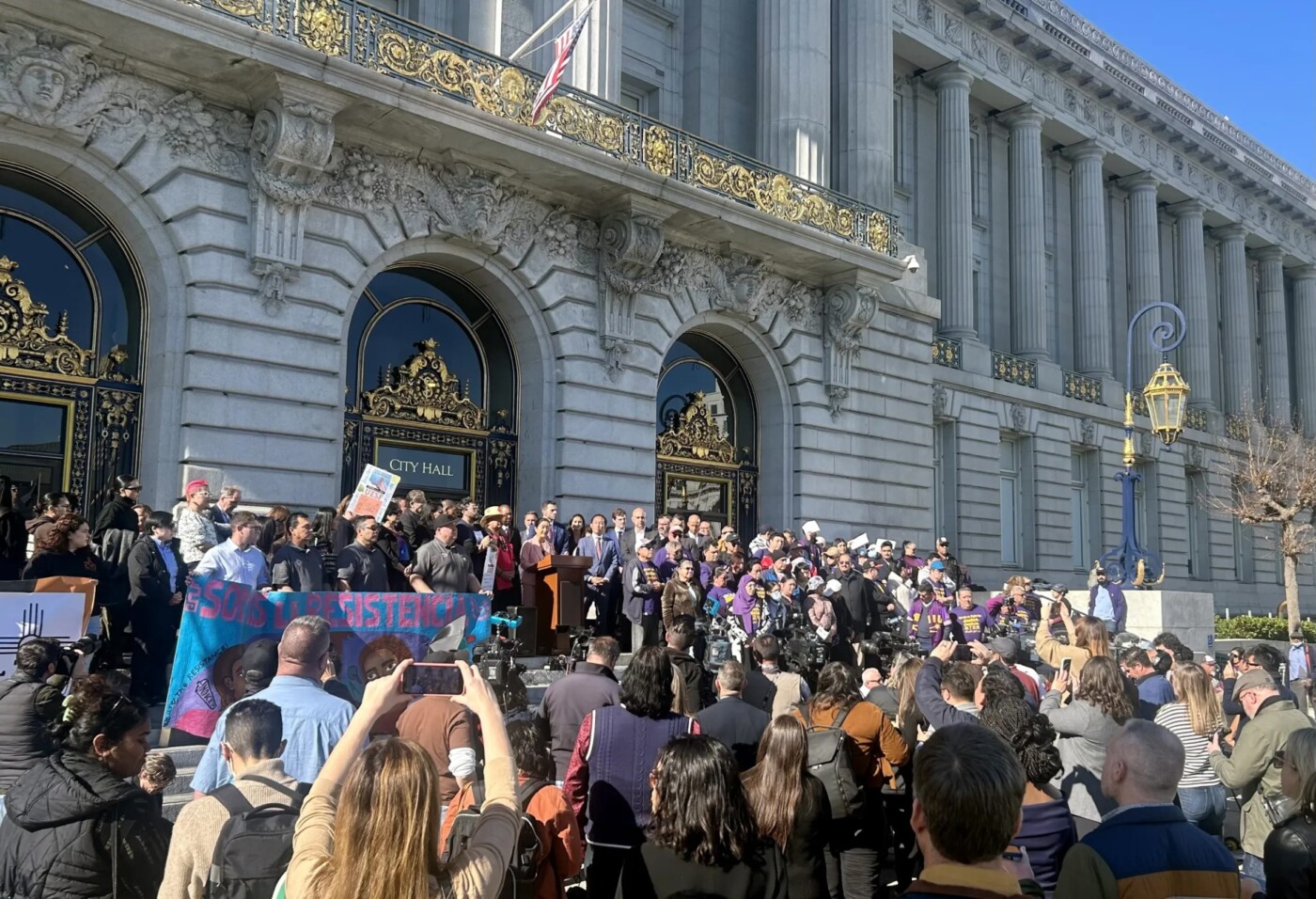A FEDERAL JUDGE HAS RULED that President Donald Trump’s administration cannot withhold federal funding from San Francisco, Santa Clara County and other so-called sanctuary cities and counties while their lawsuit challenging the action continues.
The jurisdictions, along with 14 others around the nation, sued the administration in February after a pair of executive orders targeted them for a freeze in federal funding because of their policies preventing local resources from being used to enforce federal immigration law and policy. The case is City and County of San Francisco, et al., v. Donald J. Trump, et al.
In issuing his preliminary injunction against the administration on Thursday, U.S. District Judge William Orrick cited the underlying executive orders as similar to one that had already been deemed unconstitutional during the first Trump administration. He wrote that the plaintiffs were both likely to succeed and would suffer irreparable harm.
He might have also summed up the first few months of the second Trump administration for the entire judiciary branch, writing, “here we go again.”
That’s because Orrick was the same judge who ruled on a nearly identical case in 2018 during the first Trump administration, which also tried to freeze grant funding from the U.S. Department of Justice and Department of Homeland Security to undefined “sanctuary” jurisdictions.
Orrick wrote that the 2025 executive orders, “the language and purpose of which mirror” the 2017 executive order, were likely to win on the same merits that he had previously ruled on, which were that the orders violated the Constitution’s separation of powers, the Spending Clause, the Fifth Amendment and the Tenth Amendment.
He said in his decision that the administration’s argument was “essentially the same argument it made in 2017,” which was that the jurisdictions could not sue at the time because the money had not technically been withheld yet. That argument was rejected by Orrick in 2017 and was affirmed by the 9th U.S. Circuit Court of Appeals in 2018.
A request for comment from the Department of Justice Friday afternoon was not returned.
Court ruling boosting local trust
San Francisco City Attorney David Chiu said he was pleased by the preliminary ruling, calling the executive orders illegal and coercive.
“They want to commandeer local police officers as federal ICE agents, while strong-arming local officials with threats of withholding federal funds that support our police department, our efforts to address homelessness, and our public health system. As we have seen, the Trump Administration has now deported someone by error, and ICE agents have unlawfully arrested United States citizens,” Chiu said in a statement.
Santa Clara County Counsel Tony LoPresti said the court’s ruling will help the county maintain trust in law enforcement in the local community.
Orrick noted in his ruling that the executive orders, E.O. 14,159, titled “Protecting the American People Against Invasion” and E.O. 14,218, titled “Ending Taxpayer Subsidization of Open Borders,” did not actually define sanctuary jurisdictions even as it ordered grants withheld from them.
But the judge also cited a February memo from U.S. Attorney General Pam Bondi that outlined what policies the administration would cite as justification for punishment, which were those that limit complying with civil immigration detainer requests, cooperating with administrative warrants for immigration enforcement, sharing information with federal immigration authorities other than immigration or citizenship status, using local law enforcement to arrest or detain people solely for immigration violations, or using local law enforcement resources to assist with civil immigration enforcement activities.
Jurisdictions that have sanctuary policies contend that the policies protect the local community by encouraging residents who are potential witnesses or victims of crime to interact with the justice system, as well as attend school or seek health care, regardless of immigration status.
“Studies have consistently shown immigrants are less likely to commit crimes, and jurisdictions that decline to use their local resources to assist with immigration enforcement either see no increase in crime or have lower crime rates,” Chiu’s office said in a news release.
The post Judge orders halt to Trump plan to freeze federal funding to sanctuary jurisdictions appeared first on Local News Matters.
